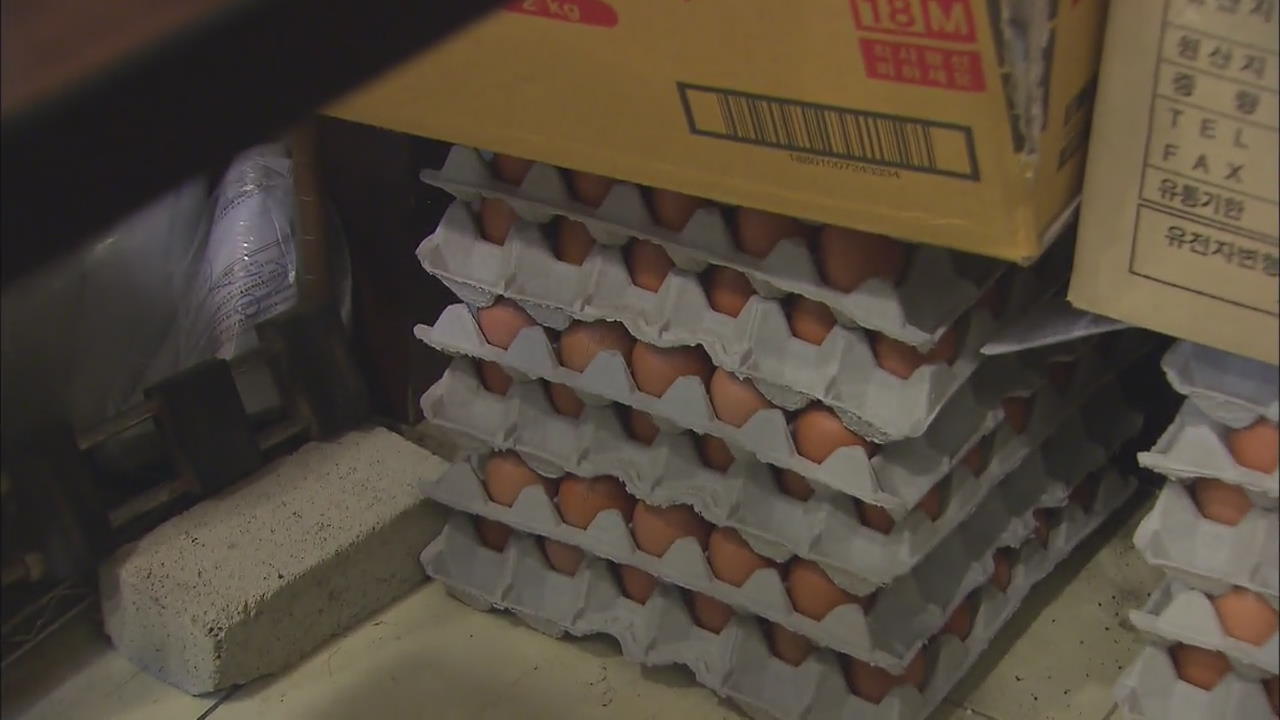Bird Flu Outbreak
입력 2016.12.22 (14:07)
수정 2016.12.22 (14:20)
읽어주기 기능은 크롬기반의
브라우저에서만 사용하실 수 있습니다.
[Anchor Lead]
Two storks that died at Seoul Grand Park, the nation's largest theme park, are confirmed to have contracted avian influenza. Seoul Grand Park, home to some 600 rare birds, is now on high alert and taking follow-up measures including culling some animals.
[Pkg]
Concerns have turned into reality at Seoul Grand Park which has enforced emergency quarantine measures. For one, 60 birds will receive biopsy tests every day. In this test, tissues from the neck area are collected to test for avian influenza infection. The test results which come out as early as in just one day are also reliable. If the samples test positive for H5, the birds will be culled immediately regardless of whether or not the strain is highly pathogenic.It becomes a problem if the number of birds to be buried sharply rises. Of the 60 or so rare bird species kept at Seoul Grand Park, 13 of them exclusively exist at the park including the cassowary and spoonbill. If they are culled, their species will no longer exist in Korea. If test results are negative for AI, the birds will then be isolated for strict protection. The Jeonju Zoo in Jeollabuk-do Province meanwhile closed on Wednesday. This marked an unprecedented case where the bird sanctuaries at all 13 zoos nationwide have shut down together for the first time.
Two storks that died at Seoul Grand Park, the nation's largest theme park, are confirmed to have contracted avian influenza. Seoul Grand Park, home to some 600 rare birds, is now on high alert and taking follow-up measures including culling some animals.
[Pkg]
Concerns have turned into reality at Seoul Grand Park which has enforced emergency quarantine measures. For one, 60 birds will receive biopsy tests every day. In this test, tissues from the neck area are collected to test for avian influenza infection. The test results which come out as early as in just one day are also reliable. If the samples test positive for H5, the birds will be culled immediately regardless of whether or not the strain is highly pathogenic.It becomes a problem if the number of birds to be buried sharply rises. Of the 60 or so rare bird species kept at Seoul Grand Park, 13 of them exclusively exist at the park including the cassowary and spoonbill. If they are culled, their species will no longer exist in Korea. If test results are negative for AI, the birds will then be isolated for strict protection. The Jeonju Zoo in Jeollabuk-do Province meanwhile closed on Wednesday. This marked an unprecedented case where the bird sanctuaries at all 13 zoos nationwide have shut down together for the first time.
■ 제보하기
▷ 카카오톡 : 'KBS제보' 검색, 채널 추가
▷ 전화 : 02-781-1234, 4444
▷ 이메일 : kbs1234@kbs.co.kr
▷ 유튜브, 네이버, 카카오에서도 KBS뉴스를 구독해주세요!
- Bird Flu Outbreak
-
- 입력 2016-12-22 14:08:44
- 수정2016-12-22 14:20:48

[Anchor Lead]
Two storks that died at Seoul Grand Park, the nation's largest theme park, are confirmed to have contracted avian influenza. Seoul Grand Park, home to some 600 rare birds, is now on high alert and taking follow-up measures including culling some animals.
[Pkg]
Concerns have turned into reality at Seoul Grand Park which has enforced emergency quarantine measures. For one, 60 birds will receive biopsy tests every day. In this test, tissues from the neck area are collected to test for avian influenza infection. The test results which come out as early as in just one day are also reliable. If the samples test positive for H5, the birds will be culled immediately regardless of whether or not the strain is highly pathogenic.It becomes a problem if the number of birds to be buried sharply rises. Of the 60 or so rare bird species kept at Seoul Grand Park, 13 of them exclusively exist at the park including the cassowary and spoonbill. If they are culled, their species will no longer exist in Korea. If test results are negative for AI, the birds will then be isolated for strict protection. The Jeonju Zoo in Jeollabuk-do Province meanwhile closed on Wednesday. This marked an unprecedented case where the bird sanctuaries at all 13 zoos nationwide have shut down together for the first time.
Two storks that died at Seoul Grand Park, the nation's largest theme park, are confirmed to have contracted avian influenza. Seoul Grand Park, home to some 600 rare birds, is now on high alert and taking follow-up measures including culling some animals.
[Pkg]
Concerns have turned into reality at Seoul Grand Park which has enforced emergency quarantine measures. For one, 60 birds will receive biopsy tests every day. In this test, tissues from the neck area are collected to test for avian influenza infection. The test results which come out as early as in just one day are also reliable. If the samples test positive for H5, the birds will be culled immediately regardless of whether or not the strain is highly pathogenic.It becomes a problem if the number of birds to be buried sharply rises. Of the 60 or so rare bird species kept at Seoul Grand Park, 13 of them exclusively exist at the park including the cassowary and spoonbill. If they are culled, their species will no longer exist in Korea. If test results are negative for AI, the birds will then be isolated for strict protection. The Jeonju Zoo in Jeollabuk-do Province meanwhile closed on Wednesday. This marked an unprecedented case where the bird sanctuaries at all 13 zoos nationwide have shut down together for the first time.
이 기사가 좋으셨다면
-
좋아요
0
-
응원해요
0
-
후속 원해요
0














![[단독] 도이치 주포 “김건희, 내 덕에 떼돈 벌어…22억 원 주문”](/data/news/2025/07/03/20250703_KpuU43.png)
![[단독] “쪽지 얼핏 봤다, 안 받았다”더니…CCTV에선 문건 챙긴 이상민](/data/news/2025/07/03/20250703_Lv3LjI.png)

이 기사에 대한 의견을 남겨주세요.